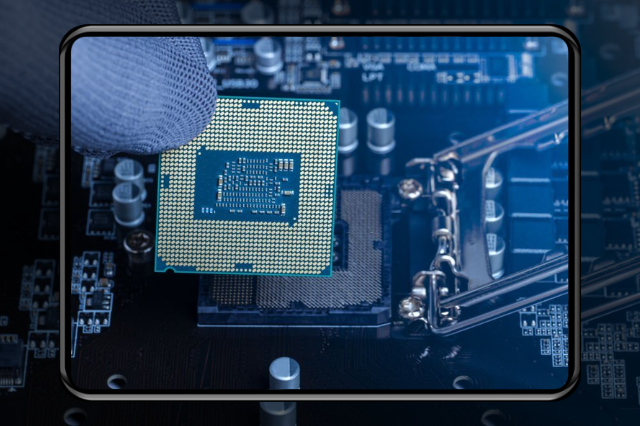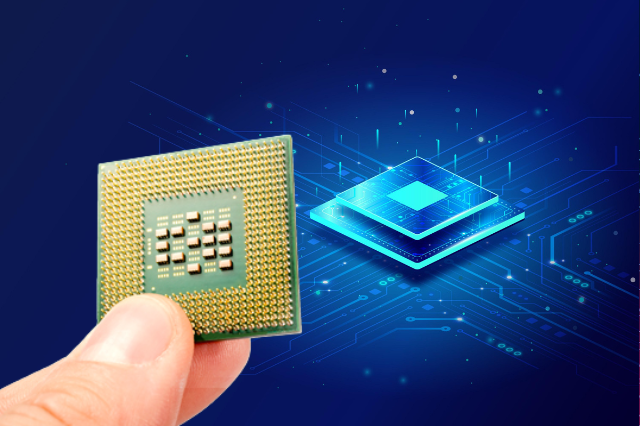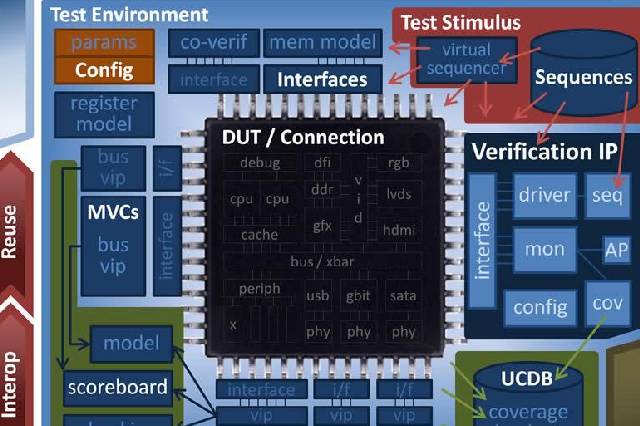
loading...

There is a growing demand for integrated circuits due to the rapid growth of technology such as artificial intelligence, 5G, and the Internet of Things (IoT). It has led to significant demand for VLSI (Very Large Scale Integration) Design professionals who can design, test, and verify these complex integrated circuits.
Many semiconductor companies offer internships and job opportunities to students pursuing VLSI design courses. It can be a lucrative career option for those interested in the field of semiconductor technology. If you have the right skills and interests, VLSI Design can prove to be a lucrative career option for you.
Career Paths in VLSI Industry
VLSI (Very Large Scale Integration) design is a constantly evolving field with cutting-edge technologies and techniques being developed all the time. It means that VLSI professionals have plenty of opportunities to learn and grow. Despite that, it is a highly specialized field that requires extensive technical skills and knowledge.
In the VLSI industry, these are some common career paths:
IC Design Engineer
In an integrated circuit, the digital and analog circuits are designed by IC (Integrated Circuit) Design Engineers. They typically work with CAD (Computer-Aided Design) tools to create and verify the functionality of their designs. This is a lucrative career option in the VLSI industry!
Verification Engineer
It is the responsibility of Verification Engineers to ensure that the integrated circuits are designed correctly and meet the specifications. They typically work with simulation tools to create test benches and run simulations to verify the functionality of the design. You have to develop the required skills to become a verification engineer.
Physical Design Engineer
As a physical design engineer, you will be responsible for designing the physical layout of the integrated circuits. Your job role includes working with CAD tools to create and optimize the placement and routing of the components on the chip.
Analog Design Engineer
An analog design engineer specializes in designing analog circuits for integrated circuits. This job role typically includes working with simulation tools to design and verify the functionality of circuits. Today, a lot of tech companies also hire analog design engineers.
System-on-Chip (SoC) Architect
A SOC architect designs the architecture of the entire system-on-chip, including the integration of multiple components such as processors, memory, and peripherals. In the semiconductor industry, SoC architect plays a crucial role in designing and developing these complex integrated circuits.
If you aspire to be a System-on-Chip (SoC) Architect, you should take up a VLSI course. It will help you develop the required skill sets to become an expert in this field.
Test Engineer
A test engineer develops and executes test plans to verify the integrated circuit's functionality. To perform functional and parametric tests on semiconductors, they typically work with automated test equipment. This is also an exciting career option in the VLSI industry nowadays!
Applications Engineer
The Applications Engineer understands customers' requirements and helps them integrate integrated circuits into their products. Also, they assist customers with technical support and troubleshooting. This is a bit of a demanding job role. If you are open to challenging and complex tasks, you can go ahead with this career option as well!
Backend Activities
The VLSI course provides students with the necessary skills and knowledge to design and develop complex electronic circuits, including microprocessors, memory chips, and other integrated circuits. The skills learned in a VLSI course are also applicable to other fields, including software development. Companies that develop electronic products also require software to control and interface with those products. This is where backend activities come into play, as backend development involves working on the server-side of software applications, such as creating and managing databases, developing APIs, and integrating with other software systems.
If you have completed a VLSI course, you can explore a career in backend development, particularly in industries such as electronic product development or other technology-based industries that require both hardware and software expertise.
Start your career in the VLSI industry today!
It is important to have a strong foundation in VLSI design to pursue a career in the VLSI industry. Consider taking a VLSI design course to get an in-depth knowledge of digital and analog design, computer-aided design (CAD) tools, verification and testing, and manufacturing processes.
A VLSI online course with certificate can be a great way to demonstrate your skills to potential employers. Also, it will help you learn about job opportunities and stay up-to-date with industry trends.
Become a VLSI Design expert with FutureWiz
FutureWiz provides comprehensive VLSI training programs to students who want to establish a career in this industry. From the basics of digital electronics to advanced topics like advanced digital design, analog design, physical design, and verification, our curriculum covers it all.
In addition to this, we offer flexible learning options, including self-paced learning, live online classes, and recorded lectures. You can choose the learning mode that best suits your schedule and learning style.
Get in touch with us to build a strong foundation in VLSI design and secure a bright career in this industry.
 Verilog Essentials: Mastering the Fundamentals of Hardware Description Language
Verilog Essentials: Mastering the Fundamentals of Hardware Description Language
 Unleashing the Power of System Verilog: A Comprehensive Guide for Aspiring Designers
Unleashing the Power of System Verilog: A Comprehensive Guide for Aspiring Designers
 Demystifying VLSI ch Design: Exploring the Core Concepts of VLSI Courses
Demystifying VLSI ch Design: Exploring the Core Concepts of VLSI Courses
 Basics of VLSI - An Ultimate Guide
Basics of VLSI - An Ultimate Guide
 Career Prospects After Completing A VLSI Course
Career Prospects After Completing A VLSI Course
 Top 5 Reasons To Take Up A Professional VLSI Course
Top 5 Reasons To Take Up A Professional VLSI Course
 Mastering VLSI Design: A Comprehensive Guide To Understanding Complex Integrated Circuits
Mastering VLSI Design: A Comprehensive Guide To Understanding Complex Integrated Circuits
 Future-Proof Your Career With A VLSI Course: How Learning About Integrated Circuits Can Boost Your Job Prospects?
Future-Proof Your Career With A VLSI Course: How Learning About Integrated Circuits Can Boost Your Job Prospects?
 System Verilog: An Overview
System Verilog: An Overview
 Introduction to Hardware Description Language (HDL)
Introduction to Hardware Description Language (HDL)
 Unlock The Potential Of VLSI Design With An Integrated VLSI Course Online
Unlock The Potential Of VLSI Design With An Integrated VLSI Course Online
 Universal Verification Methodology:An Efficient Verification Approach
Universal Verification Methodology:An Efficient Verification Approach
 How to Write a Verilog Module for Design and Testbench
How to Write a Verilog Module for Design and Testbench
 What Are the Different Career Paths in the VLSI Industry?
What Are the Different Career Paths in the VLSI Industry?
 Skills required to establish a successful career in VLSI
Skills required to establish a successful career in VLSI Looking for online VLSI courses? Futurewiz can fulfill your upskilling needs!
Looking for online VLSI courses? Futurewiz can fulfill your upskilling needs! The Future Of VLSI- Get All The Latest Insights!
The Future Of VLSI- Get All The Latest Insights! Super 50 Program For Advanced VLSI Design Training
Super 50 Program For Advanced VLSI Design Training Steps to Build Career in VLSI
Steps to Build Career in VLSI Similarities between C and Verilog
Similarities between C and Verilog What is UVM - A High-level overview
What is UVM - A High-level overview



